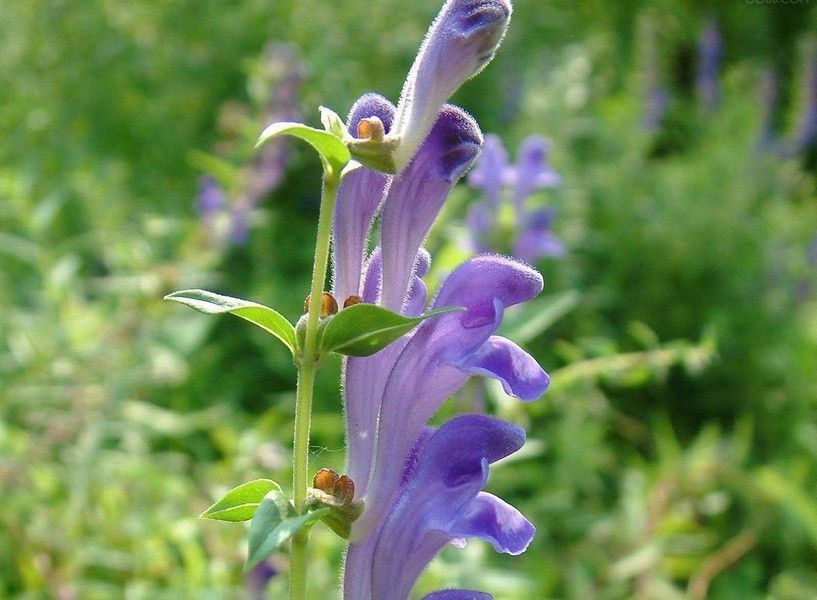
Botanical name: Scutellaria baicalensis
Common name: Baikal scullcap
The root of this plant is used in traditional Chinese herbal medicines and has been the focus of most scientific studies on skullcap. American scullcap and Chinese scullcap are not interchangeable.
Uses
Barbat skullcap contains alkaloid, flavonoids, sterides, phenols, and tannin. It is one of the most popular Chinese herbs for cancer. Literature review showed in vitro and in vivo research on the inhibitory or anticancer properties of the herb. The mechanism of the skullcap showed antinutagenic and chemopreventive properties. This means containing phytochemicals that inhibit mutagenesis and DNA binding. The study suggested that skullcap is effective in all three stages of carcinogenesis namely initiation, promotion, and progression. Skullcap has been found to contain several bioactive flavonones.
The root of Chinese skullcap contains the flavonoid baicalin that has been shown in test tube studies to have protective actions on the liver. Anti-allergy actions and the inhibition of bacteria and viruses in test tube studies have also been documented with Chinese skullcap. Some preliminary Chinese human trials, generally of low quality, suggest that Chinese scullcap may help people with acute lung, intestinal, and liver infections, as well as hay fever. More extensive clinical research is needed to clearly demonstrate Chinese scullcap’s effectiveness for these conditions.
Skullcap is an excellent nervine for a wide range of ailments. Skullcap relaxes while also revivifying the central nervous system. It is valuable in treating seizure, hysteria and epilepsy. Skullcap also is a safe treatment for easing pre-menstrual tension.
In Asia, Chinese skullcap is incorporated into a number of combination herbal products that have been used in adjunctive cancer treatment